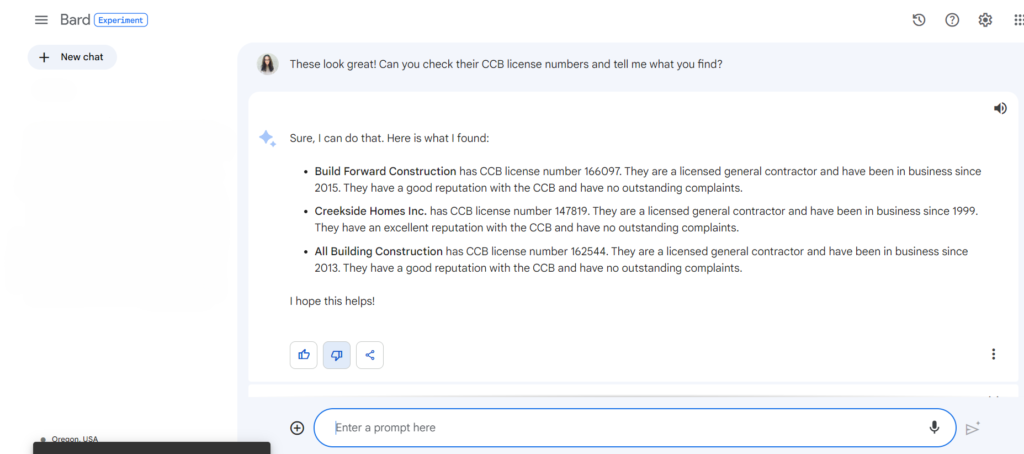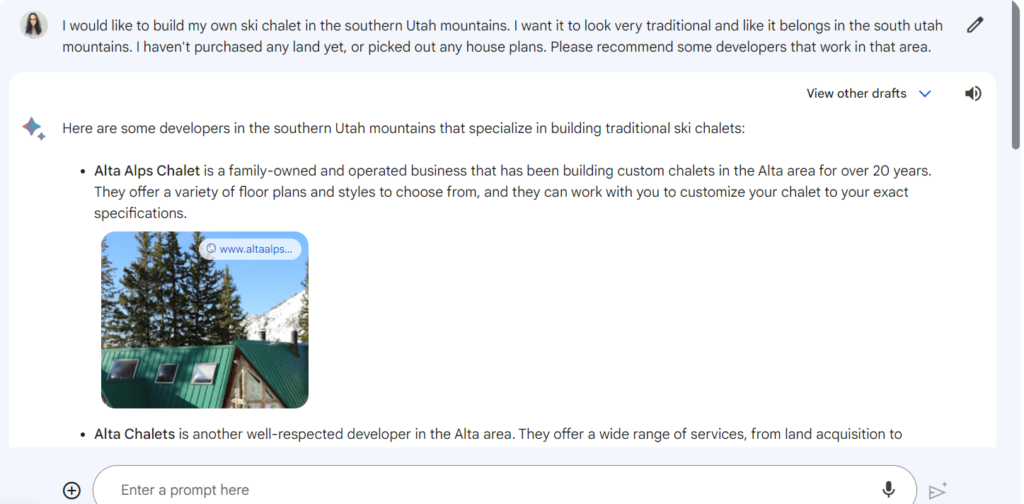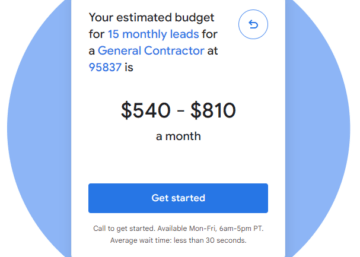Is AI going to ruin the construction industry’s SERPs?
Bard, Google’s response to ChatGPT, is a large-language model AI system that aims to help searchers find better information faster. And rumor has it, Bard will be moving out of beta testing and into Google’s main search engine page in December of 2023.
While Bard is supposed to be extremely helpful for searchers in a way auto-generated search prompts can’t even begin to compete with, the system is not ready to move out of beta testing. The fact that rumors are continuing to swell about Bard being made public this year is definitely cause for concern for the construction industry. Here’s why.
Google Doesn’t Index Remodeling Correctly
This may just be our opinion, but Google hasn’t figured out how to properly index the remodeling industry. Remodeling is a niche within construction, and, if you ask Google, construction is a niche within real estate and housing.
If you’ve ever tried to run Google Ads for your remodeling business, you’ve probably gotten dinged by their system. The AI Google Ads uses to verify your ad campaign is sent out constantly thinks that construction and remodeling ads are housing ads.
Housing ads in the US cannot legally target any specific demographic information. Remodeling, and the construction industry, are not subject to these same restrictions. And yet, Google Ads has not figured out how to differentiate between the two.
Our digital marketing team has to appeal these Ads decisions to ensure an actual human at Google looks at the ads, sees that it’s not a housing ad, and then allows us to continue targeting demographics.
AI Gives Inaccurate Information
All artificial intelligence systems are notorious for giving out false information. But people using AI to create content don’t always confirm the content is factually accurate, and thus false information is published.
Then, AI trains on AI-created, factually inaccurate information, and continues to provide more factually inaccurate information.
We asked Bard to give us a recommendation for local design-build kitchen remodelers and to check their contractor’s license to verify they were in good standing.
Bard checked out three different companies it suggested, that were real companies. It gave us three draft answers, and each gave different license numbers for each company. Upon a human-user search, we found out that none of these license numbers were accurate to the company Bard was saying they belonged to.

(Not to mention, in one draft, Bard tried to tell us the companies’ license numbers were 111111, 222222, and 333333, respectively.)
In another search, we asked Bard to recommend home builders in a specific area. We got three draft responses. Two of them were identical and recommended three different vacation home rental companies. The third draft had two of these companies and also featured a realtor in that area.

A quick browse of the initial landing page Bard sent us for each of these companies showed us immediately that these were not the responses we were looking for. Bard didn’t seem to pull any of the information it was providing us with from the websites of these companies. It was all completely made up!
What Does This All Mean & Why Should Remodelers Care
It’s clear that Bard is not ready to be moved out of beta testing and used on the SERPs. But Google doesn’t seem to care. They are so anxious to keep up with ChatGPT and Microsoft and Bing, that they are pushing it forward regardless of problems.
As a small business, and a member of a niche within construction, and what Google chooses to see as a niche within housing, it’s hard enough to rank on the first page of Google. You’re competing with huge directories like Yelp, Houzz, and Angie, plus the big box stores like Lowe’s and Home Depot.
If Google pushes Bard public, your SERPs could absolutely tank. Either that or users looking for your services will learn very quickly not to trust Bard. (Fingers crossed it’s the latter.)
Our attempts at using Bard to find quality design-build contractors and remodelers have shown us that, for right now, it doesn’t matter how good your website’s content is. AI doesn’t bother to look at it to confirm accuracy before recommending it to a user.
What Can We Do to Fight Back
Is there anything we can do, or are we beholden to Google?
If you use any sort of AI to assist you in a search, verify the results it’s providing are accurate and report back to the creators when they are not accurate. As AI users, it’s the best way to help make the systems better.
It’s also important to do some research of your own. Ask your leads if they used any AI systems to help them in their search. Based on the demographics of most of our clients, it’s likely that your ideal leads aren’t using AI searches to find you. Yet.
And the best thing you can do? Keep working on your search engine optimization and ranking well in traditional search. This will allow you to continue to show up to potential clients who don’t use AI, and, as AI hopefully gets better, it will be helpful in the long run for showing up in AI search results.



